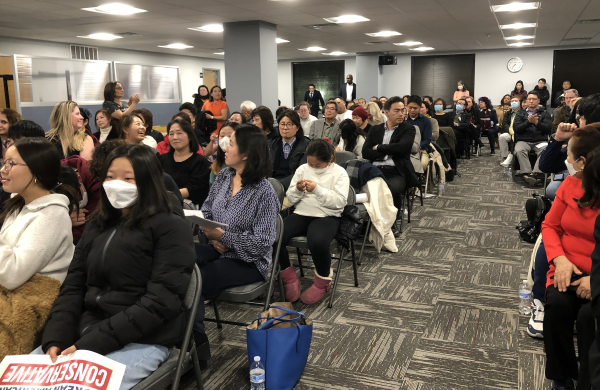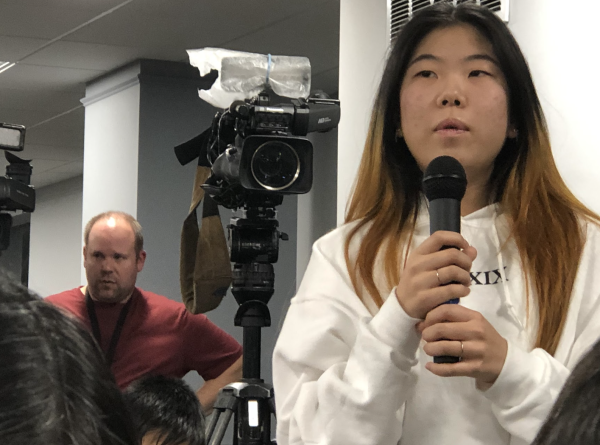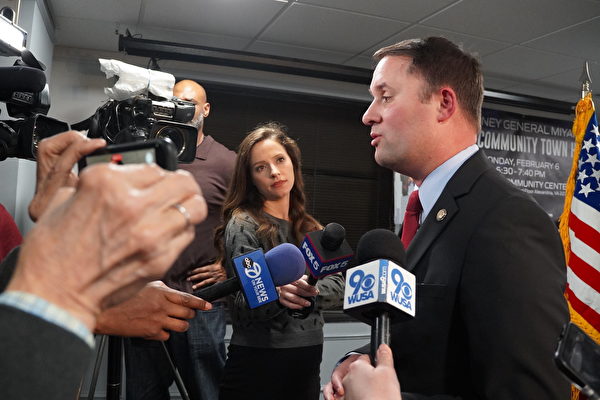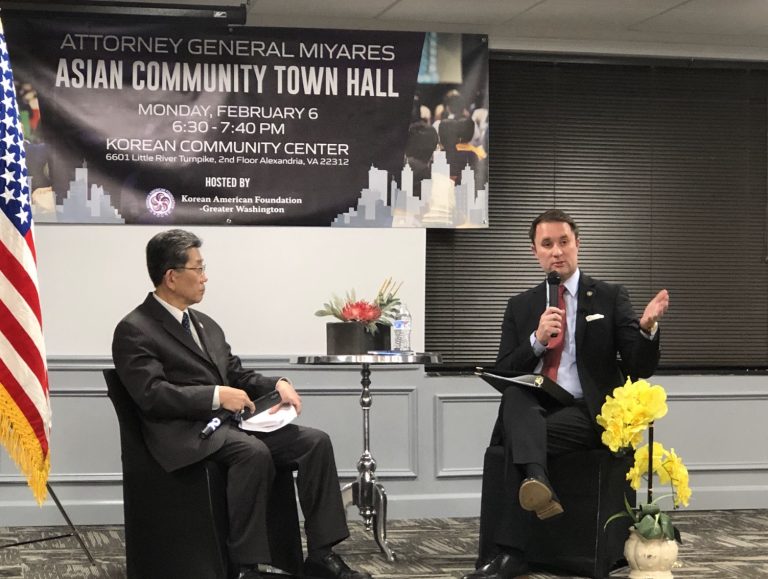ALEXANDRIA, Virginia — On Feb. 6, Virginia’s Attorney General Jason Miyares (R-VA) held a community roundtable at the Korean Community Center to discuss issues related to discrimination and racism targeting students and residents of Asian descent in the state of Virginia.
“We got started on reviewing the [schools] policies after a lot of parents were coming to me very concerned because they felt like their kids were being denied admission to certain schools because they’re Asian-American,” Miyares said.
Miyares — whose mother fled Cuba in search of a better life for herself and her family — told attendees that there was unacceptably blatant discrimination against Asian Americans in Virginia, and described how his office is working towards “actively remedying” the issue to hold these schools accountable.

READ MORE: Virginia Roundtable Discusses CCP Infiltration in US Business, Social Media, and Entertainment
“We are the people’s protector and that’s why we’re taking on this very important issue,” he said.
Success
You are now signed up for our newsletter
Success
Check your email to complete sign up
In recent years, reports have emerged of several cases where Asian American students have been unfairly denied admission into Thomas Jefferson High School for Science and Technology (TJHS); neither the students nor their parents were informed about scholarships and financial aid assistance in a timely manner, Miyares said.
Miyares related an example he had heard: “One mom told me, ‘my daughter has done everything right since the first grade, she has studied so hard, but I’m realizing that her dream of going to TJHS is likely going to be denied to her — not because of anything she has done, but simply because she is Korean-American.’”
Institutional racism at play
As one of the most sought-after specialized schools in the country, TJHS is known for its high academic standards and rigorous curriculum. However, despite their hard work and achievements, Asian-American students have been repeatedly denied admission into the school.
The concerns sparked an investigation into TJHS’s admissions system and found that the merit-based admissions policy the school used to have has been changed.
“It used to be that if you had the grades and the test scores, you could go,” Miyares said, adding, “We know that once [TJHS] went from a merit-based to an equity-based admission policy, we saw a 20 percent decrease of Asian enrollments in just one year.”
He added: “Parents were coming to me worried about this new admissions policy, and then we saw how at least 17 schools and over 1,000 students were affected across the state — over 70 percent of whom were Asian students.”

In addition to being denied admission, Asian-American students have also been delayed in being told about scholarships and financial aid assistance — a concerning trend as many of these students come from low-income families who are unable to afford the cost of tuition. The delay in information about scholarships and financial aid is a major setback for these students, as they are unable to secure funding for their education, effectively putting their futures at risk, Miyares said.
Far-reaching implications
“We know of at least one school in Virginia that offers free tuition if you receive a national merit recognition, and we calculated it’s worth about $92,000 total over four years,” Miyares said, expressing frustration over the fact that some students were not told about these resources.
“I can’t imagine the agony as a parent when you see your child who has worked so hard in their studies not be recognized just because of their race,” he said.
The issue is not just affecting Asian-American students in Virginia — but also the wider community — Miyares said, adding: “This kind of discrimination undermines the principles of fairness and equality that are at the core of American society — it sends a message that some groups are not welcome or equally valued.”
Accountability is key
With the cost of living rising and inflation continuing to bust consumers’ budgets, figuring out a way to pay for school is only becoming more difficult, Miyares said. “I worked all 4 years through college, and I can tell you, how you pay for college is just as stressful as getting into college.”

Miyares shared how his office launched an investigation into TJHS’s admissions policy and “delayed notifications of scholarships and assistance programs” for minority students. “We want equal outcomes for each student. No one should be treated unequally on purpose,” Miyares said, adding that the investigation has potential to become a federal lawsuit under Virginia’s Human Rights Act, and the state’s bill of rights.
“Using race, national origin, or any other protected class element as an admissions factor at one of our top high schools is wrong under the Virginia Bill of Rights. It’s unfair,” Miyares said.
“Dr. [Martin Luther] King’s dream is that everyone should be judged by the content of their character; not by the color of their skin. I want all of you to achieve your dream, and education is a doorway to the American dream,” he said.
“No one should have that doorway closed because of their racial, religious or ethnic background.”
















